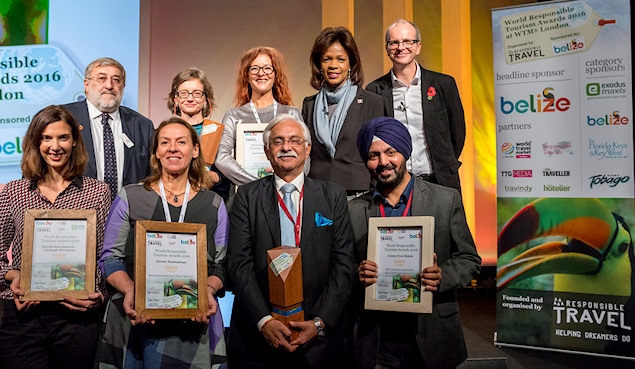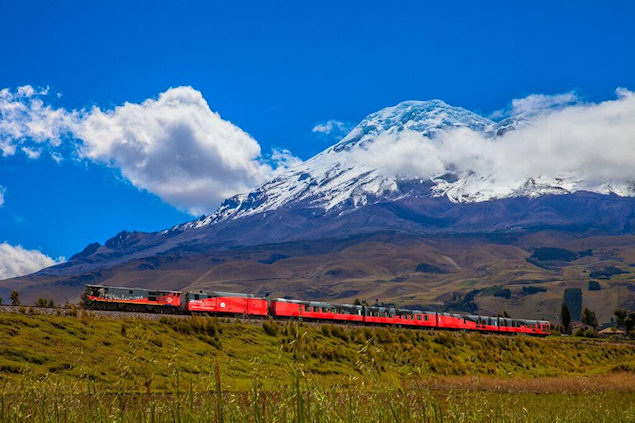Tuesday 8 November is a date that will not quickly be forgotten. The US Presidential Election may have dominated media outlets and bar conversations, but 8 November was also World Responsible Tourism Day (WRTD).
This year marks the 10th anniversary of WRTD. The event was established at the World Travel Market in London in 2006 in an effort to generate more awareness for Responsible Tourism around the world.

This year also marked 20 years since the first principles of Responsible Tourism were incorporated into Tourism Policy. In South Africa in 1996, Responsible Tourism principles were put at the centre of the Tourism White Paper for the new post-apartheid government.
The World Responsible Tourism Awards ceremony was hosted at the World Travel Market. These Awards are given to tourism companies and initiatives which acted as examples for the rest of the world in Responsible Tourism in the previous year. There are a number of different categories, including best accommodation for responsible employment, and best innovation by a tour operator.
Gold Winner for poverty reduction and inclusion was luxury train company Tren Ecuador.
I, like many others, found myself surprised at this choice. Luxury train travel – where passengers typically stay on board a very comfortable train – has often been criticised for being an example of less-than-responsible tourism. Passengers on board are typically carried through developing countries at the height of luxury, experiencing little of the ‘real world’ beyond the train windows. A little like cruise travel, travelers infrequently experiencing local cultures and communities as they move through the countryside, and are accessible only to wealthier travelers.
Tren Ecuador have challenged this perception, and may have just launched the first example of “Fair-Train Travel”.
Also awarded as joint overall winner (together with Indian Hotel Group Lemon Tree hotels), Tren Ecuador was judged on achieving measurable reduction in poverty in a local community; inclusion of local and marginalised people; and providing a working example of sustainability for other tourism providers around the world.
A state-run enterprise in a country that has a Ministry of Happiness and Wellbeing, Tren Ecuador’s journey runs from Guayaquil to Quito. The luxury train model still exists, but instead of spending all their time on the train, passengers regularly disembark. Nights are spent not on the train, but at high-end, locally run haciendas. Meals are eaten at locally owned restaurants, and snacks or drinks are taken at one of 23 locally run station cafes that were set up specifically for the train project.

However, passengers getting off the train and engaging in local communities involves far more than just sleeping, eating and drinking. Day tours are a key part of the train experience. Learning about locally grown cocoa beans and homemade chocolate, visiting artisan markets, and being pulled by a restored steam engine are some of the ways that supporting local communities and heritage have been built into the trip to allow passengers to experience the culture of Ecuador.
The project sets an example for other luxury train (and other transport operators) around the world and shows that planning and co-creation of tourism products together with local communities can make the difference for responsible tourism. Even for train companies where passengers sleep on board the train, there is a clear opportunity for the train companies to engage with responsible tourism operators in the destinations that they visit to include tours that showcase the culture of the destination.
There’s also a clear opportunity to offer tours that go beyond the “Top 10” lists and get to the heart of a country – whether that is a rosy picture or not. One of the perceptions that luxury train travel suffers from is being whisked around in a comfort that is alien to those the train passes by, and experiencing only a slice of the world outside.
One of the reasons Tren Ecuador’s efforts have been so successful is that they focus on spreading the positive economic impact of tourism to those who need it the most. As tourism grows globally, and mass tourism becomes the norm, finding new ways to bringing tourism to countries and areas that will benefit from it is key. Engaging local residents in the process is central to this success.
As a direct result of of Tren Ecuador’s business model, 5,000 livelihoods for those living in remote and rural communities are now supported. Communities are now trained in growing and selling fair-trade products and principles, and passengers get to experience some wonderful stories of how they have helped support this.
The Award judges concluded by saying, “The judges hold Tren Ecuador up as an outstanding, holistic example of how all tours should be designed, and feel that if all tourism was planned in this way it would be very effective at making better places in which to live, as well as better places to visit.” I can’t help but agree.
Read Ethical Traveler's Reprint Policy.
